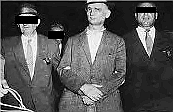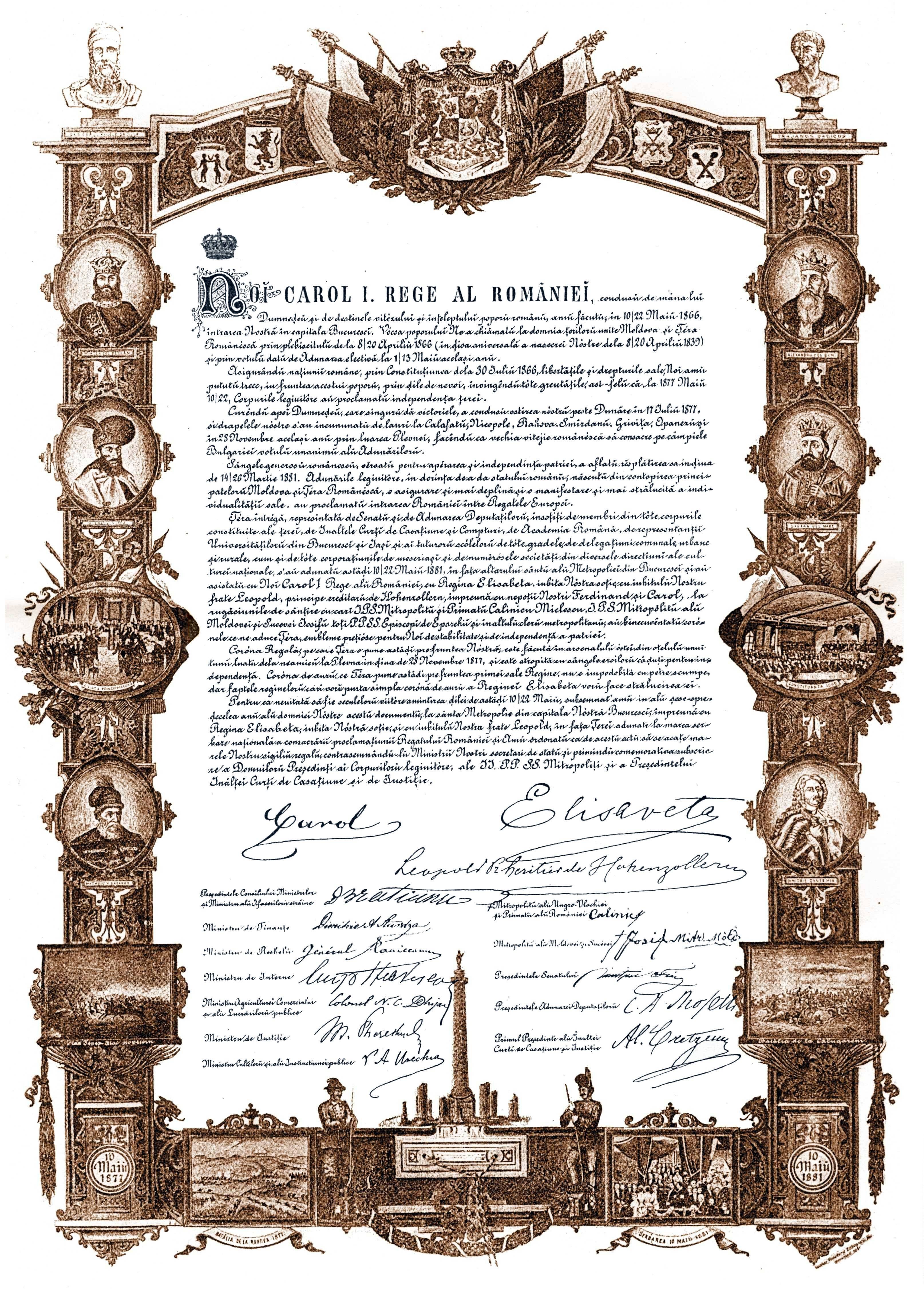|
Siguranța
''Siguranța'' was the generic name for the successive secret police services in the Kingdom of Romania. The official title of the organization changed throughout its history, with names including Directorate of the Police and General Safety (), the Secret Intelligence Service (), the Special Intelligence Service () or simply the Intelligence Service (), History Created in 1908, in the aftermath of a 1907 Romanian Peasants' revolt, major peasant revolt, it acted as a political police, monitoring, infiltrating and trying to dismantle political groupings considered undesirable by the government. Changing its structure several times during the first half of the 20th century, it was disbanded in 1948, when Romania became a Romanian People's Republic, people's republic. Siguranța's role, as well as many of its employees, were integrated into the newly founded Securitate, Department of State Security ("Securitate"). Around 1924, Siguranța secret intelligence assassinated a leader o ... [...More Info...] [...Related Items...] OR: [Wikipedia] [Google] [Baidu] |
Securitate
The Department of State Security (), commonly known as the Securitate (, ), was the secret police agency of the Socialist Republic of Romania. It was founded on 30 August 1948 from the '' Siguranța'' with help and direction from the Soviet MGB. The Securitate was, in proportion to Romania's population, one of the largest secret police forces in the Eastern bloc. The first budget of the Securitate in 1948 stipulated a number of 4,641 positions, of which 3,549 were filled by February 1949: 64% were workers, 4% peasants, 28% clerks, 2% persons of unspecified origin, and 2% intellectuals. By 1951, the Securitate's staff had increased fivefold, while in January 1956, the Securitate had 25,468 employees.Cristian Troncota"Securitatea: Începuturile", Magazin Istoric, 1998 At its height, the Securitate employed some 15,000 agents and almost half a million informants for a country with a population of 23 million by 1989. The Securitate under Nicolae Ceaușescu was one of the most br ... [...More Info...] [...Related Items...] OR: [Wikipedia] [Google] [Baidu] |
Romanian Communist Party
The Romanian Communist Party ( ; PCR) was a communist party in Romania. The successor to the pro-Bolshevik wing of the Socialist Party of Romania, it gave an ideological endorsement to a communist revolution that would replace the social system of the Kingdom of Romania. After being outlawed in 1924, the PCR remained a minor and illegal grouping for much of the interwar period and submitted to direct Comintern control. During the 1920s and the 1930s, most of its activists were imprisoned or took refuge in the Soviet Union, which led to the creation of competing factions that sometimes came into open conflict. That did not prevent the party from participating in the political life of the country through various front organizations, most notably the Peasant Workers' Bloc. In 1934–1936, PCR reformed itself in the mainland of Romania properly, with foreign observers predicting a possible communist takeover in Romania. The party emerged as a powerful actor on the Romanian political ... [...More Info...] [...Related Items...] OR: [Wikipedia] [Google] [Baidu] |
Bucharest
Bucharest ( , ; ) is the capital and largest city of Romania. The metropolis stands on the River Dâmbovița (river), Dâmbovița in south-eastern Romania. Its population is officially estimated at 1.76 million residents within a greater Bucharest metropolitan area, metropolitan area of 2.3 million residents, which makes Bucharest the List of cities in the European Union by population within city limits, 8th most-populous city in the European Union. The city area measures and comprises 6 districts (''Sectors of Bucharest, Sectoare''), while the metropolitan area covers . Bucharest is a major cultural, political and economic hub, the country's seat of government, and the capital of the Muntenia region. Bucharest was first mentioned in documents in 1459. The city became the capital in 1862 and is the centre of Romanian media, culture, and art. Its architecture is a mix of historical (mostly History of architecture#Revivalism and Eclecticism, Eclectic, but also Neoclassical arc ... [...More Info...] [...Related Items...] OR: [Wikipedia] [Google] [Baidu] |
Ministry Of Administration And Interior (Romania)
The Ministry of Internal Affairs of Romania () is one of the eighteen ministries of the Government of Romania. From 23 August 1944 to 18 March 1975 the ministry held the title of ''Minister of Internal Affairs'', between 2004 and 2007, held the title of ''Minister of Administration and Interior'', and since April 2007, ''Minister of Interior and Administrative Reform''. In December 2008, the Boc government changed the name back to ''Ministry of Administration and Interior''. Until 2006, the ministry was housed near Lipscani in ''Palatul Vama Poştei'', built between 1914 and 1926 according to the architect Statie Ciortan's plans. In 2006 the ministry moved into the former building of the Senate on Revolution Square. Subordinated structures Within Romania, the following structures are subordinated to the Ministry of Internal Affairs: * Romanian Police * Romanian Gendarmerie * Romanian Border Police * General Inspectorate for Emergency Situations * General Inspectorate for ... [...More Info...] [...Related Items...] OR: [Wikipedia] [Google] [Baidu] |
Secret Police
image:Putin-Stasi-Ausweis.png, 300px, Vladimir Putin's secret police identity card, issued by the East German Stasi while he was working as a Soviet KGB liaison officer from 1985 to 1989. Both organizations used similar forms of repression. Secret police (or political police) are police, Intelligence agency, intelligence, or Security agency, security agencies that engage in covert operations against a government's political, ideological, or social opponents and dissidents. Secret police organizations are characteristic of Authoritarianism, authoritarian and Totalitarianism, totalitarian regimes. They protect the political power of a dictator or regime and often operate outside the law to repress dissidents and weaken political opposition, frequently using violence. They may enjoy legal sanction to hold and charge suspects without ever identifying their organization. History Africa Egypt Egypt is home to Africa and the Middle East's first internal security service: The Stat ... [...More Info...] [...Related Items...] OR: [Wikipedia] [Google] [Baidu] |
Kingdom Of Romania
The Kingdom of Romania () was a constitutional monarchy that existed from with the crowning of prince Karl of Hohenzollern-Sigmaringen as King of Romania, King Carol I of Romania, Carol I (thus beginning the Romanian royal family), until 1947 with the abdication of King Michael I of Romania, Michael I and the Romanian parliament's proclamation of the Socialist Republic of Romania, Romanian People's Republic. From 1859 to 1877, Romania evolved from a personal union of two Principality, principalities: (Moldavia and Wallachia) called the Unification of Moldavia and Wallachia also known as "The Little Union" under a single prince to an autonomous principality with a House of Hohenzollern, Hohenzollern monarchy. The country gained its independence from the Ottoman Empire during the Russo-Turkish War (1877–1878), 1877–1878 Russo-Turkish War (known locally as the Romanian War of Independence), after which it was forced to cede the southern part of Bessarabia in exchange for Northern ... [...More Info...] [...Related Items...] OR: [Wikipedia] [Google] [Baidu] |
Romanian People's Republic
The Socialist Republic of Romania (, RSR) was a Marxist–Leninist one-party socialist state that existed officially in Romania from 1947 to 1989 (see Revolutions of 1989). From 1947 to 1965, the state was known as the Romanian People's Republic (, RPR). The country was an Eastern Bloc state and a member of the Warsaw Pact with a dominant role for the Romanian Communist Party enshrined in its constitutions. Geographically, RSR was bordered by the Black Sea to the east, the Soviet Union (via the Ukrainian and Moldavian SSRs) to the north and east, Hungary and Yugoslavia (via SR Serbia) to the west, and Bulgaria to the south. As World War II ended, Romania, a former Axis member which had overthrown their pro-Axis government, was occupied by the Soviet Union as the sole representative of the Allies. On 6 March 1945, after mass demonstrations by communist sympathizers and political pressure from the Soviet representative of the Allied Control Commission, a new pro-Soviet go ... [...More Info...] [...Related Items...] OR: [Wikipedia] [Google] [Baidu] |
Elizabeth Zarubina
Elizaveta Yulyevna Zarubina (; 1 January 1900 – 14 May 1987; Ester Yoelevna Rosentsveig (Эстер Иоэльевна Розенцвейг)) was a Soviet spy, holding the rank of '' podpolkovnik'' in the Ministry of State Security (Soviet Union). She was known as Elizabeth Zubilin while serving in the United States. Another alias was Elizaveta Gorskaya. Early years Born in Rzhavyntsi, in the Khotinsky Uyezd of the Bessarabia Governorate of the Russian Empire (present-day Ukraine) to Jewish parents, Yoel and Ita Rosentsveig. She studied history and philology at universities in Romania, France, and Austria, and spoke in English, French, German, Romanian, Russian and Yiddish. Career Zarubina was one of the most successful agent recruiters, establishing her own illegal network of Jewish migrants from Poland, and recruiting one of Leó Szilárd's secretaries, who provided technical data. She was the wife of Soviet Intelligence Resident Vasily Zarubin. She was an active ... [...More Info...] [...Related Items...] OR: [Wikipedia] [Google] [Baidu] |
Soviet Union
The Union of Soviet Socialist Republics. (USSR), commonly known as the Soviet Union, was a List of former transcontinental countries#Since 1700, transcontinental country that spanned much of Eurasia from 1922 until Dissolution of the Soviet Union, it dissolved in 1991. During its existence, it was the list of countries and dependencies by area, largest country by area, extending across Time in Russia, eleven time zones and sharing Geography of the Soviet Union#Borders and neighbors, borders with twelve countries, and the List of countries and dependencies by population, third-most populous country. An overall successor to the Russian Empire, it was nominally organized as a federal union of Republics of the Soviet Union, national republics, the largest and most populous of which was the Russian SFSR. In practice, Government of the Soviet Union, its government and Economy of the Soviet Union, economy were Soviet-type economic planning, highly centralized. As a one-party state go ... [...More Info...] [...Related Items...] OR: [Wikipedia] [Google] [Baidu] |
1908 In Romania
Nineteen or 19 may refer to: * 19 (number) * One of the years 19 BC, AD 19, 1919, 2019 Films * ''19'' (film), a 2001 Japanese film * ''Nineteen'' (1987 film), a 1987 science fiction film * '' 19-Nineteen'', a 2009 South Korean film * '' Diciannove'', a 2024 Italian drama film informally referred to as "Nineteen" in some sources Science * Potassium, an alkali metal * 19 Fortuna, an asteroid Music * 19 (band), a Japanese pop music duo Albums * ''19'' (Adele album), 2008 * ''19'', a 2003 album by Alsou * ''19'', a 2006 album by Evan Yo * ''19'', a 2018 album by MHD * ''19'', one half of the double album '' 63/19'' by Kool A.D. * ''Number Nineteen'', a 1971 album by American jazz pianist Mal Waldron * ''XIX'' (EP), a 2019 EP by 1the9 Songs * "19" (song), a 1985 song by British musician Paul Hardcastle * "Stone in Focus", officially "#19", a composition by Aphex Twin * "Nineteen", a song from the 1992 album ''Refugee'' by Bad4Good * "Nineteen", a song from the ... [...More Info...] [...Related Items...] OR: [Wikipedia] [Google] [Baidu] |


